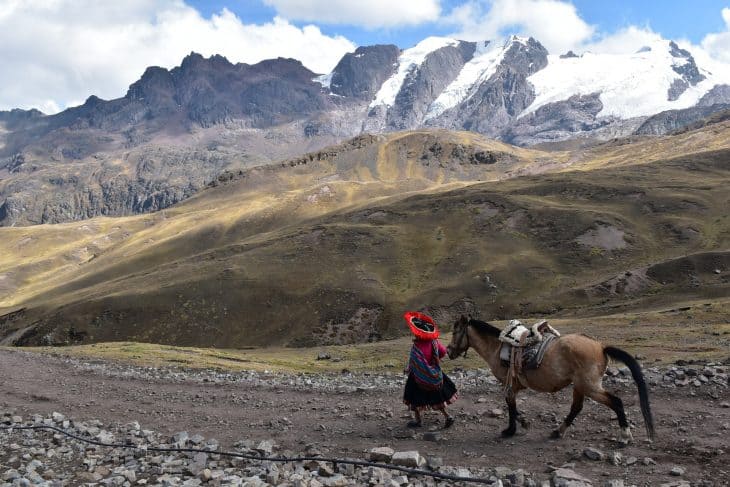
- Largest Country: Puma concolor
- Largest City: Mammal
- Smallest Country: Carnivore
- Population: 385,742,554
- Climate: Tropical, with areas of arid desert
- Most Popular Sport: Football
- Main Industry: Tourism
- Main Language: Portuguese, Spanish, English
- Countries: 12, and 2 small territories
- Capital Cities: 9
- Geography: South America Is the 4th Largest Continent in the World
- Nature: South America Is Home to 6 of the World’s Most Unusual and Exciting Animals
- Languages: There Are 10 Spanish Speaking Countries in South America
- Geography: South America’s Climate Is Mostly Hot and Wet, but the Region Is also Home to the Driest Desert on Earth
- History: 3 of the World’s Greatest Empires Originate in South America
- Argentina, One of the Largest Countries in South America, Takes Its Name from the Word “Silver”
- The Largest Rainforest in the World Is in South America
- South American Music Is World Famous
- The Nazca Lines Are a Jaw Dropping Feat of Geology
- South America’s Condor Is the World’s Largest Flying Bird
South America Is the 4th Largest Continent in the World
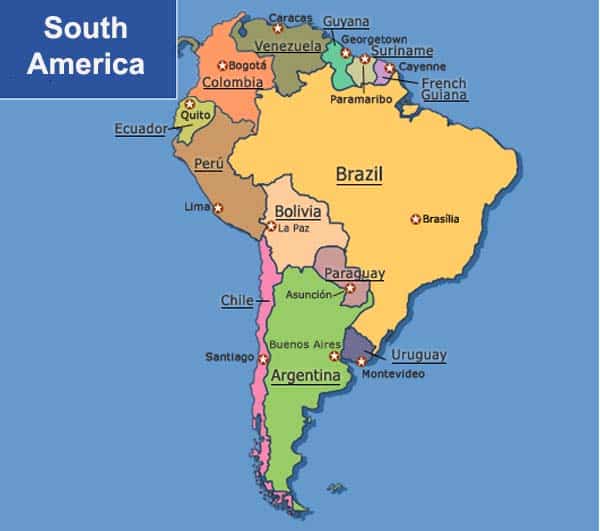
South America is located in the Southern hemisphere, and is bordered by the Pacific Ocean in the west and the Atlantic Ocean in the east. The continent covers some 6,890,000 square miles of land, with the region’s geography dominated by the Andes Mountains and the Amazon River. South America is very diverse, and is home to the vast Amazon Rainforest, grasslands like the Pampas Plain and savannahs such as the Atacama Desert.
South America Is Home to 6 of the World’s Most Unusual and Exciting Animals
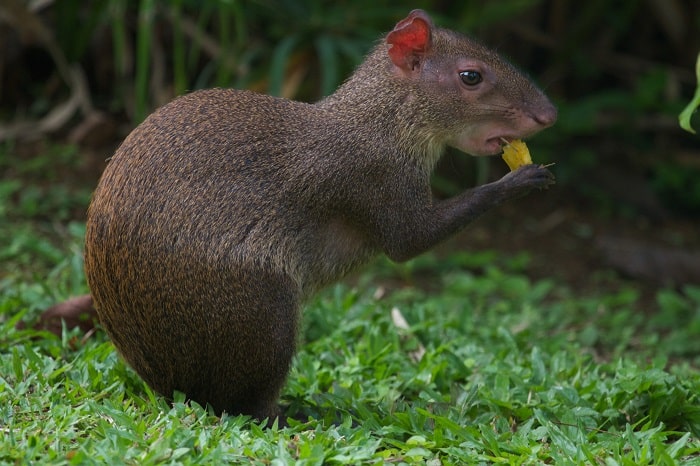
The most unusual of all of these is the agouti, which is a rodent. It is closely related to the guinea pig and varies in color from light brown to red, typically having light colored underparts. The agouti is covered in coarse, short hair which raises up in spikes when the animal is frightened or alarmed. More well-known animals native to the country are species such as llamas, chinchillas and armadillos, but Argentina is also home to deadly anacondas known for their ability to be able to wrap round their animal kingdom victims and crush their bones. Finally, there is the anteater, known for its very large fore claws, which can easily tear open ant mounds. This animal has very long fur, which protects them from being bitten and attacked by the insects they feast on.
There Are 10 Spanish Speaking Countries in South America
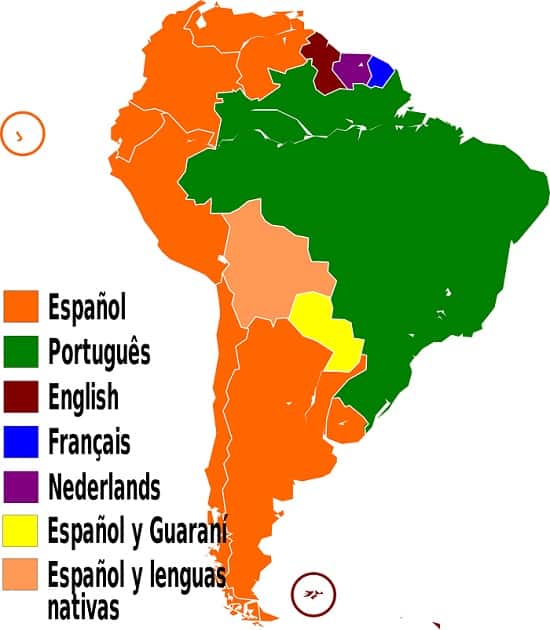
..or 9. It all depends on whether you decide to count Panama or not. Some people believe that this country doesn’t count towards the final tally as it is the dividing line between Central and Southern America, while others will add it in. South America is a very diverse continent in terms of its languages. Portuguese is of course one of the main spoken languages, but there are a great many people that also speak Dutch, French and English too.
South America’s Climate Is Mostly Hot and Wet, but It Is also Home to the Driest Desert on Earth
The Atacama Desert, located in Chile, is believed to hold this title. It covers a 621 mile (1000 kilometer) strip of land. Most of the land mass is populated by sand, salt lakes and stony terrain. The average rainfall for the entire year is believed to be only 0.5 fluid ounces. It is reported that some of the weather stations in the area set up to record statistics on the desert have never received a single drop of rain!
3 of the World’s Greatest Empires Originate in South America
The Mayans, Aztecs and Incas all have their roots in South America – and they were among the wealthiest, yet most mysterious, colonies in the world. The Aztecs were considered to be the most powerful until the year 1519, when a Spanish army leader called Hernando Cortez launched a war against them. The Aztecs, though wealthy, had very little in the way of advanced weaponry and could not fight back against Cortez and his soldiers. This marked the end of their power. After this time, the Spanish started to colonize more of South America and tried to tap into the region’s vast natural resources.
Argentina, One of the Largest Countries in South America, Takes Its Name from the Word “Silver”
One of the most fascinating South America Facts is how the country came to be named. Argentina was formerly called The United Provinces of the Rio De La Plata, but took its new name after a legend sprang up that there was a large treasure of silver hidden away in the mountainous regions of the country. The name is derived from the Latin Argentum and dates back to the 16th century when explorers from Spain and Portugal came to the country to look for this treasure.
The Largest Rainforest in the World Is in South America
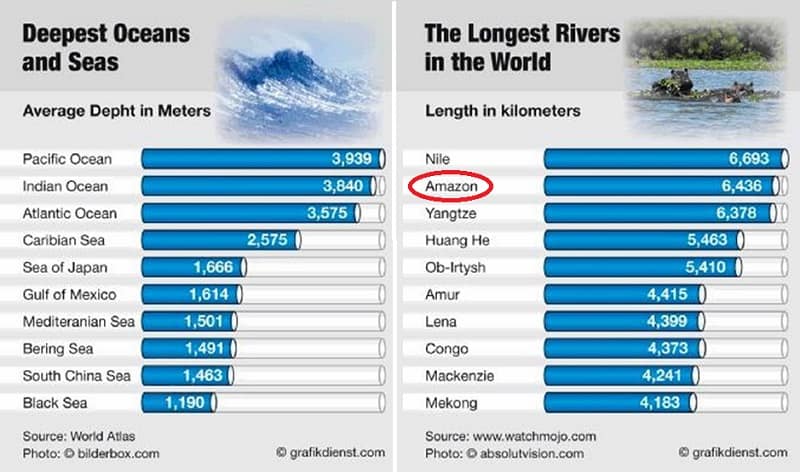
The Amazon rainforest is 2,123,562 square miles (4 million square kilometers) in area and is home to some 2.5 million different types of insect species. Not only that, but it also contains one fifth of the world’s freshwater. It also shares its name with a river that has another amazing statistic: the Amazon River is actually the world’s second longest.
South American Music Is World Famous
Music traditions such as samba, tango and cumbia originate in these lands. Samba was made famous by Brazilian musicians, and one of its most famous exponents was the singer and movie star Carmen Miranda, who did more to bring the music to the mainstream in the 20th century than anyone else. Cumbia is probably one of the least well-known forms of South American music. It originates in Columbia and the sounds form part of courtship rituals and dances between people from the country. It is a fusion between African and Amerindian traditions.
The Nazca Lines Are a Jaw Dropping Feat of Geology
Scholars believe these ancient lines, located in Peru, were created between 450-600AD. Calling them lines does them an injustice, though, as they are an intricate and truly beautiful set of images of different animals and creatures. The only reason they have been preserved is because of the climate in Peru. It was originally believed that these images were only viewable from the air, though this theory has been disproved to an extent as climbers who have traversed the surrounding foothills have claimed to have seen them from the top of their ascents.
South America’s Condor Is the World’s Largest Flying Bird
The condor is a type of vulture and is native to Peru, Ecuador and Chile. It is also the main symbol on the coat of arms of Colombia. It has a wingspan of almost 10 feet (3 meters), but, sadly, due to aggressive hunting in the countries it originates from, it is in danger of extinction. The condor was widely believed to kill livestock so was frequently killed for this reason; however, this has now been found to be untrue and there are efforts being made to preserve and sustain the remaining birds.
South America Facts – Facts about South America Summary
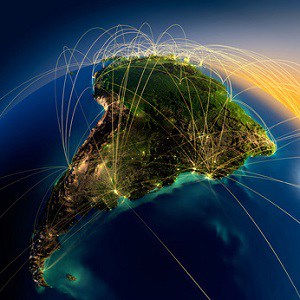 South America is a continent of many interesting juxtapositions. There are 12 countries within South America. Nine or 10 of these speak Spanish, depending on whether you class Panama as part of South America. South America Facts also tell us it is home to some of the world’s most unusual animal species. South America pioneered Samba music. It is home to the world’s largest rainforest and also the most arid desert in the world.
South America is a continent of many interesting juxtapositions. There are 12 countries within South America. Nine or 10 of these speak Spanish, depending on whether you class Panama as part of South America. South America Facts also tell us it is home to some of the world’s most unusual animal species. South America pioneered Samba music. It is home to the world’s largest rainforest and also the most arid desert in the world.
Was this page helpful?
Our commitment to delivering trustworthy and engaging content is at the heart of what we do. Each fact on our site is contributed by real users like you, bringing a wealth of diverse insights and information. To ensure the highest standards of accuracy and reliability, our dedicated editors meticulously review each submission. This process guarantees that the facts we share are not only fascinating but also credible. Trust in our commitment to quality and authenticity as you explore and learn with us.
